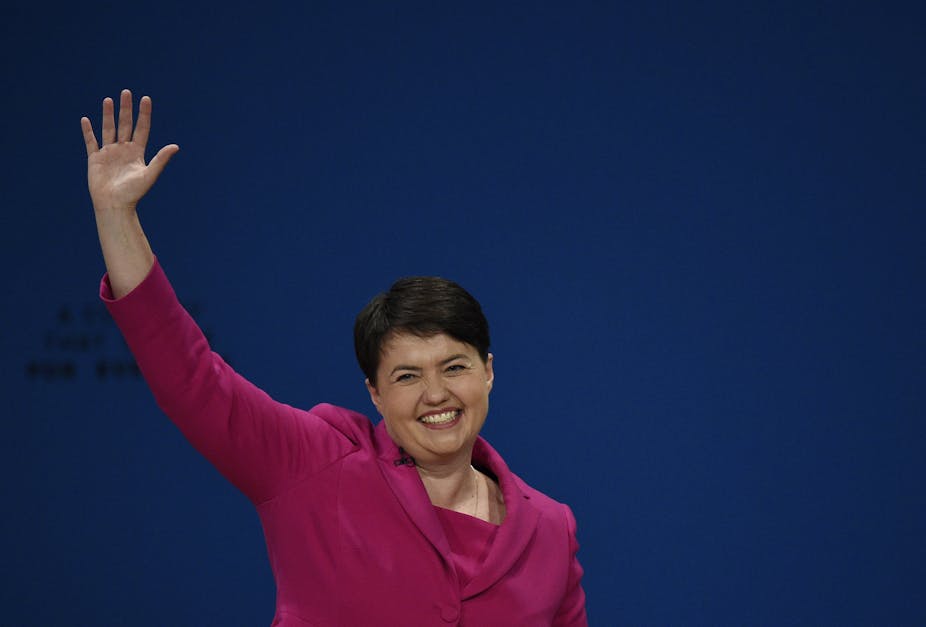Few could have foreseen that a young, gay, working-class woman would transform the fortunes of the Conservative party in Scotland when she became leader eight years ago. But that’s exactly what Ruth Davidson did. Almost singlehandedly, she is responsible for her party’s political revival in Scotland, where crucially, it has eclipsed Labour as the main opposition party.
But following her resignation, citing a combination of personal and political reasons, the Scottish party may be wondering if it can hold on to 13 MPs at Westminster and remain in second place in Scotland.
Davidson’s decision to quit is a serious blow to the Conservatives. There is no obvious big personality replacement. If you search for Ruth Davidson on the YouGov polling site, you find that 64% of people have heard of her, and she is the fourth most popular Conservative politician at UK level.
If you search on YouGov for possible leadership contenders such as Davidson’s deputy (and now acting leader) Jackson Carlaw MSP, or Adam Tomkins MSP, the level of recognition is just not there.
Davidson had “atypical” Conservative traits. She was a new and different kind of Conservative leader: young (32 when she took on the role); female; gay; and a former journalist. As well as being described on YouGov as “confident, assured, admirable and commanding”, she was a relaxed, easygoing communicator who could reach the parts of the electorate that other Tories could not.

Difficult questions
While Davidson had hoped to be first minister by 2021, the political and socio-economic shake-down from Brexit under Boris Johnson is likely to lead to a haemorrhaging of support for the Scottish Conservatives. His strategy seems to be to win the Labour Leave heartlands, which might be good news for the Conservatives in England, but looks like being bad news in Scotland.
Read more: Boris Johnson suspends parliament: what does it mean for Brexit and why are MPs so angry?
Indeed, the most promising future for Scottish Conservatives might actually be in an independent Scotland, free from the members of their party pursuing a very different narrative at Westminster.

In the meantime, a relatively unknown Conservative leader might have to think the unthinkable at the next UK General Election. If three unionist parties are competing against one independence party (SNP) for winnable seats at Westminster using first-past-the-post, they might need to make deals and run where they stand most chance of challenging the SNP, and standing down where they will split the union vote.
Undoubtedly Ruth Davidson has left behind very big boots to fill. If Conservative popularity tanks in Scotland the way Labour’s did, we might see a quick succession of leaders. Of course it puts Nicola Sturgeon in an even more commanding position than ever before. But she has now had five years as leader, and leaders are lucky if they can hold on for as long as Davidson has managed – particularly in these unprecedented times of political churn.

